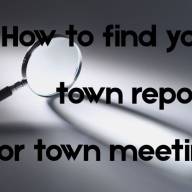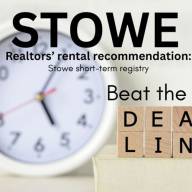A recent presidential directive to lower flags in honor of a social media personality’s death prompted the Waitsfield Select Board to consider whether future half-masting orders should be reviewed locally – especially when public reaction reveals division and discomfort.
Select board chair Brian Shupe raised the issue during a regular board meeting on September 22, noting the confusion and concern from residents after flags in town were lowered in response to a proclamation from President Donald Trump honoring Charlie Kirk, a political activist and internet personality who was recently murdered.
“People were reaching out, upset, asking why this was happening,” Shupe said. “To many, it felt like the flag was being politicized – not to honor someone, but to make a point. I felt it was worth putting on the agenda for discussion.”
Although the flag-lowering followed long-standing practice, the situation was complicated by timing. Fred Messer, the board member and longtime volunteer responsible for physically lowering the town’s flags, was out of town at the time. Another member of the local American Legion Post stepped in to carry out the task.
The reaction from some residents was swift and emotional.
“One woman was the most upset I’ve ever seen her,” said town administrator York Haverkamp. “Multiple people reached out to me, and it was clear this struck a nerve.”
For decades, the town has followed presidential and gubernatorial proclamations to lower flags. Messer, a veteran and member of the American Legion and the Sojourners– a Masonic group of veterans – explained that the practice has always been rooted in nonpartisan respect.
“I’m very upset this happened in this incident,” Messer said. “It’s not what the flag code or the intent is. That’s why we had some problems.”
He said that the U.S. Flag Code, written by the American Legion and adopted in 1923, does not carry legal penalties for noncompliance, but it serves as widely accepted guidance. The president has the authority to order half-staffing for federal properties, while governors do so for state facilities. Local governments and private citizens are not bound by the proclamations but often follow suit.
“We’ve always done it,” Messer said. “It’s like muscle memory – when we see a presidential proclamation, we just go out and do it. But this time, we ended up in a no-win situation.”
Messer explained the local Legion post took on the task years ago. The post now oversees the lowering and replacement of flags at four sites: the town office, the fire station, the General Wait House, and the local school. Cemetery flags are handled by the sexton.
Shupe acknowledged the challenge.
“The slippery slope is when the flag gets politicized,” he said. “If we don’t lower it, someone’s insulted. If we do, someone else is insulted. But we have to ask: Do we want the select board to play a role in deciding when it’s appropriate, particularly if it feels like the proclamation is being misused?”
Select board member Chach Curtis agreed that consistency is important, especially when only some flags are lowered in town.
“Whatever we do, we should be consistent,” Curtis said. “Having one building at half-mast and another not is a problem. If we’re going to revise or adopt a policy, it should apply to all town-controlled flags.”
The board discussed whether such decisions could be made quickly in the future through emergency meetings, which are allowed under Vermont’s Open Meeting Law as long as notice is provided within 24 hours and proper procedure is followed. York confirmed the town has that authority and that such meetings could be held virtually if needed.
Board members expressed hope that this was a one-time situation.
“I hope it’s a one-off,” Messer said. “But if it happens again, it might force our hands.”
Board member Larissa Ursprung said she was disappointed that the board even had to have the conversation.
“I don’t think I’ve seen a proclamation that didn’t align with the American Legion’s guidance before, but I haven’t researched it thoroughly enough to say that definitively,” said Ursprung.
Shupe reiterated that no one acted improperly, and that the town simply followed its usual practice. But given the controversy, he felt it was worth beginning a discussion.
“We just need to acknowledge that these are different times,” he said. “The federal government is under pressure, and actions that once were seen as symbolic acts of unity can now appear politicized, depending on the context.”
Board member David Babbot-Klein noted that the outrage wasn’t limited to one side. “Car dealerships that forgot or didn’t lower their flags were getting shamed on social media,” he said. “It’s the whole rigmarole.”
Messer cautioned against letting partisan politics influence a symbol meant to unify.
“I belong to organizations where we don’t talk politics for exactly this reason,” he said. “You want to talk politics, join a different group. But don’t politicize the flag.”
The board did not take any formal action but indicated it would continue discussions on whether to establish a policy or process to handle future directives. For now, the town’s practice remains unchanged.
“We’ll keep chewing on it,” Shupe said. “But we may need to prepare for the possibility that this wasn’t the last time we face this.”
PULL QUOTE
“You want to talk politics, join a different group. But don’t politicize the flag.” Fred Messer, Waitsfield Select Board and American Legion.
You might also like













